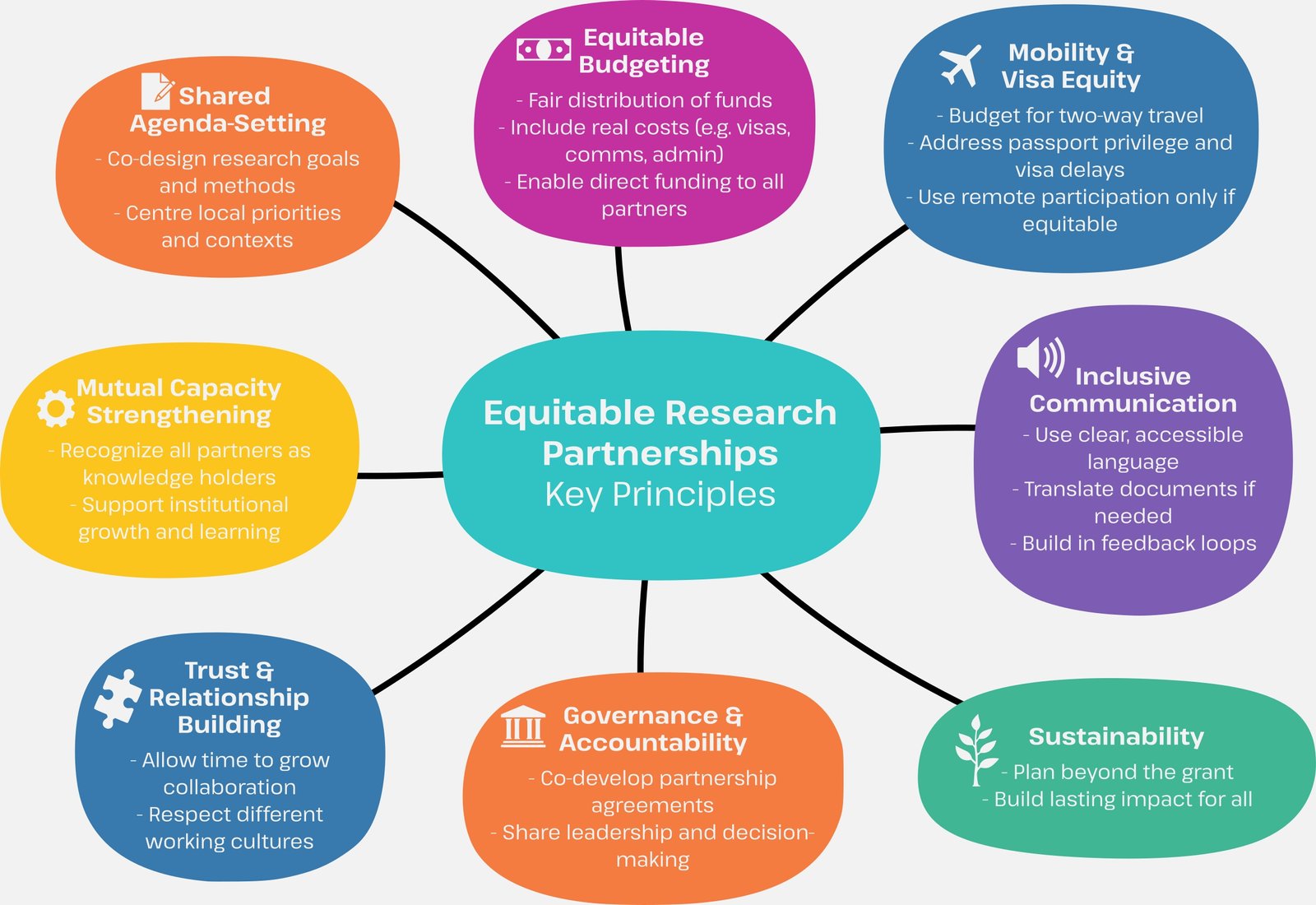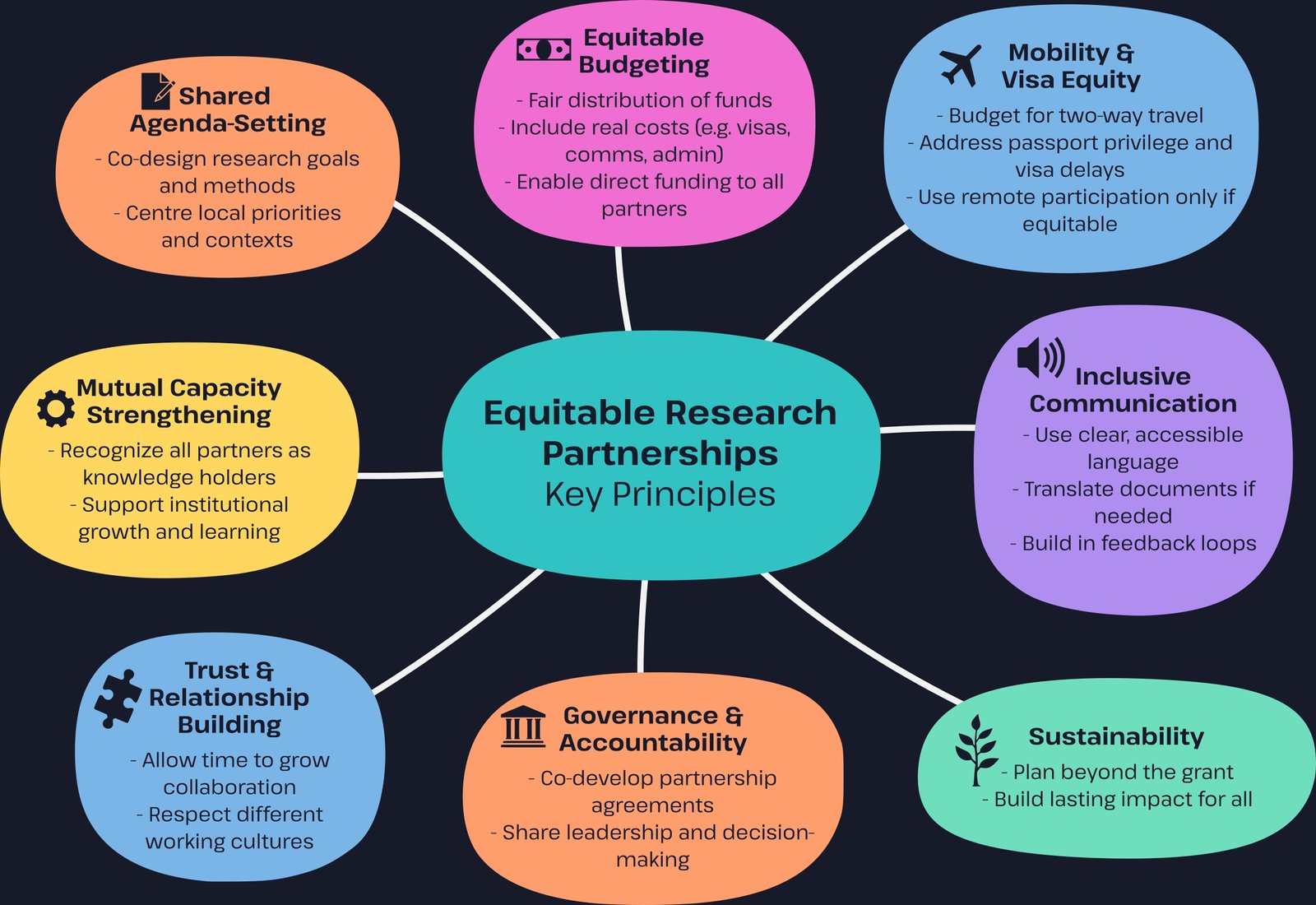Introduction
Equitable research partnerships are grounded in mutual respect, transparency, and shared power. In global research, especially across the Global North and South, historic and ongoing imbalances have shaped funding, agenda-setting, and mobility. These imbalances can lead to the marginalization of voices from the Global South and hinder the co-creation of knowledge.
Equitable partnerships actively address systemic imbalances between the Global North and South. Passive commitment to equity is not enough as existing inequities will simple occur by default. There are many things to consider here, some of which we summarise below. Have a look at the Association of Commonwealth Universities Equitable Research Partnerships Toolkit for a more in-depth exploration.
By integrating these principles, research partnerships can move beyond transactional relationships to transformative collaborations that are inclusive, respectful, and mutually beneficial. Equity in research partnerships is not an add-on—it is a prerequisite for knowledge production that is globally relevant, inclusive, and just.
Practical Steps and Tools
Establish Clear Partnership Agreements: Define roles, responsibilities, and expectations at the outset to prevent misunderstandings and ensure transparency. Look at the Perivoli Africa Research Centre’s Africa Charter for inspiration.
Promote Inclusive Decision-Making: Implement structures that allow all partners to have a voice in key decisions, fostering a sense of ownership and commitment.
Consider Travel Arrangements. Develop two-way travel plans and timelines collaboratively, budgeting for all related costs. Visit our Resources page to use the Passport and Visa Equity Toolkit by the TEPSO (Towards Equal Partnerships with Global South) project.
Ensure Equitable Budgeting: Allocate funds in a manner that reflects the contributions and needs of all partners, including provisions for capacity building in under-resourced institutions. Visit the Budgeting for Inclusion section and our Resources page to use the Budget Equity Toolkit by the TEPSO (Towards Equal Partnerships with Global South) project.
Facilitate Mutual Capacity Building: Design projects that offer learning opportunities for all partners, recognizing that each brings unique strengths and knowledge to the collaboration.
References and Further Resources
Four approaches to supporting equitable research partnerships, an ESSENCE and UKCDR Good Practice Document.
Equitable Partnerships Guide, provided by NIHR.
Equitable Research Partnerships Between Global North and Global South Research Collaborators: Making it Happen, a document from the Humanitarian Advisory Group.

